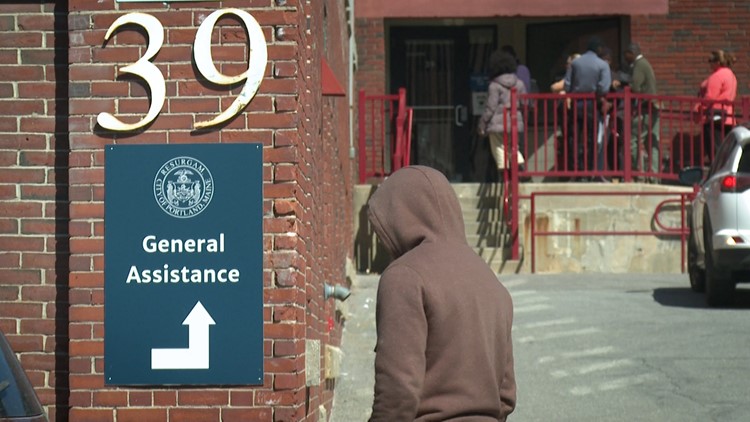PORTLAND, Maine — The pandemic-era immigration restriction known as Title 42 expired at midnight Friday as thousands of immigrants stood ready to cross the border.
The Biden Administration said it is hiring more Border Patrol agents, increasing the number of people processing immigration paperwork, and enforcing tougher consequences for unlawful entry.
Migrants will now need to apply for asylum first in the countries they pass through.
The administration also instituted a policy to speed up processing by allowing asylum seekers to enter the U.S. without a set future court date, but a federal judge in Florida has temporarily blocked it.
These changes come to Maine, and the City of Portland is facing a surge of more than 1,000 asylum seekers to the city alone since January 2023.
Gov. Janet Mills called on the federal government to fix the immigration system, which currently faces massive delays in processing asylum paperwork, as well as the applications that allow these immigrants to work. Those delays are forcing asylum seekers to take shelter in city facilities, which are currently at capacity.
"The Administration is closely monitoring the pending expiration of Title 42, including its potential impacts on the State of Maine, and we will continue to work closely with municipalities to mitigate – to the extent possible – any potential local issues associated with its expiration," a spokesperson for Gov. Mills wrote in an e-mail to NEWS CENTER Maine. "Fundamentally, this is a national problem, and, as the Governor has long called for, Congress must overhaul the country’s broken immigration system, which is unfairly placing a tremendous burden on states and their communities, and provide greater Federal resources to states that are grappling with the effects of its failure."
The majority of asylum seekers arrive in the city of Portland.
The city opened the Portland Expo as an emergency shelter on April 10. Seven days later, it was at capacity with 301 people staying there. In addition, the city opened its new Homeless Services Center on March 22. City staff said roughly 70 percent of the census there are asylum seekers. City staff are pointing any newly arriving asylum seekers to a self-directed housing search.
"We have been very clear with people who work at the border of our current situation, and we believe they have been sharing this with new arrivals," Jessica Grondin, a spokesperson for the city, wrote in an e-mail.
Those lack of resources are interwoven with the city's chronically homeless population.
"I do fear that we will see growing unsheltered homelessness in our city and state if there is an increase in the number of people arriving," the city's health and human services director, Kristen Dow, said in an e-mail response.
"We remain in contact with CBP and partners at the Southern Border and across the country. We have also been attending Department of Homeland Security briefings for municipalities on the lifting of Title 42 and will continue to do so," Dow wrote.
The state and the city have relied on the Immigrant Legal Advocacy Project to help asylum seekers achieve a more permanent status.
"Resource challenges that we are facing in Maine and beyond should be met with resource solutions, not denying access to life-saving humanitarian protection. We can and must welcome people with dignity. When we do so, we strengthen our communities for everyone," ILAP leaders wrote in a statement.
In the months leading up to Title 42's expiration, Maine government agencies funded one of the nonprofits helping immigrants accurately and expeditiously fill out their paperwork.
Congresswoman Chellie Pingree, D-Maine, and Sen. Susan Collins, R-Maine, each re-introduced versions of their bills that would allow asylum seekers to start working 30 days after filing their asylum application—a drop from the current federal government waiting period of 180 days.
"It certainly makes no sense that they are in a situation of dependency which puts a great strain on municipal budgets to support them,” Collins said. “The asylum seekers want to work. They don't want to be dependent. They want to provide for their families and employers are desperate for more employees."
Sen. Collins also sent a letter to Department of Homeland Security (DHS) Secretary Alejandro Mayorkas in March to request the agency not send more asylum seekers to Portland without a verified destination address.



